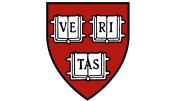The College’s impending sanctions on members of single-gender final clubs, fraternities, and sororities have engendered fierce, even bitter, disagreements over students’ rights, governance, and whether the policy will effect needed changes in undergraduate social life. (Read the most recent account of these clashing views within the Faculty of Arts and Sciences [FAS] here.) While the policy itself remains the focus of debate, less attention has focused on implementing the sanctions—but there are sharply drawn, difficult issues there, too. Presumably, the Implementation Committee formed by College dean Rakesh Khurana is grappling with some of these challenges as it works toward drafting recommendations this coming spring. One of them burst into view this week.
The sanctions themselves prescribe (among other measures) that, “For students matriculating in the fall of 2017 and thereafter: any such students who become members of unrecognized single-gender social organizations will not be eligible to receive the Dean’s endorsement letters for those fellowships that require such endorsements.” The language would appear to be unambiguous, and those fellowships are the marquee ones: Rhodes, Marshall, Mitchell, and Schwarzman scholarships among them.
Lending a possible element of uncertainty, the charge to the implementation group asks it to address, among other questions, “What leadership roles and endorsements are affected by the policy.” The “leadership roles” likely encompass, for instance, serving as captain of an athletics team, or as head of an approved undergraduate organization (a publication, a chorus, and so on).
Even more basic, determining how student membership in such organizations is in fact to be ascertained is a tricky issue for the Implementation Committee, since overall and individual memberships are not known now (as reported here): presumably, students will be required to certify their status in some way.
The intersection of the sanctions with such questions leads to a matter fundamental to professors’ responsibilities. From the perspective of faculty members who have focused on the issue, their recommendations of students for prestigious academic fellowships are based on their evaluation of candidates’ academic performance, merit, and potential: academic work worth supporting further through, say, a Rhodes or Marshall scholarship. And that decision is made on the intellectual merits, based on a faculty member’s assessment as professor and teacher. In this perspective, imposing a subsequent administrative filter on the recommendation—withdrawing the College’s endorsement on the basis of a student’s decision to join a legal social organization, such as a final club or sorority, that does not qualify for College recognition—impermissibly violates both the academic relationship between teacher and student, and the proper bounds of professorial responsibility and authority.
Earlier this week, The Harvard Crimson reported on FAS dean Michael D. Smith’s perspective on the some of the governance questions surrounding the sanctions, in the wake of the contentious faculty meeting on December 6. Toward the end of the article, the Crimson reported:
[Porter] University Professor Helen H. Vendler said she believed in issuing the policy, administrators infringed on faculty rights to nominate undergraduates for fellowships. [Vendler planned to address the matter December 6, but was not recognized to speak before the meeting adjourned.]
Smith said he hopes to clear up professors’ confusion about how the policy affects their nomination of undergraduates for prestigious fellowships, including the Rhodes and the Marshall. According to Smith, the policy does not prohibit a faculty member from writing a nomination letter for an undergraduate who belongs to a final club or Greek organization.
“A faculty member can propose that, ‘This person, I think, is an outstanding person for the Rhodes, here’s how I understand them,’” Smith said. “They can even write to the Dean of the College and say, ‘Here’s why I think you should be supporting this person, here’s how I see the things that you’re going to write about,’ so that he [dean of the College] can form his or her future letter. All those things are still allowed underneath the policy, as it’s been described at this point.”
But of course, as the sanctions policy is written, once a faculty member crafts and forwards such a recommendation, should the student candidate turn out to be a member of a sanctioned social organization, the required institutional endorsement is withheld—an outcome that is fatal for the application. Thus, the distinction Smith drew may not be a meaningful difference for the faculty members concerned. So the Implementation Committee faces an especially delicate task in trying to reconcile sincerely written academic letters of recommendation with a subsequent administrative filter that could render them null.
FAS’s debate of the sanctions as a policy is scheduled to resume February 7. But the issues joined there are on a high, institutional plane. As for the application of the sanctions themselves, scheduled to take effect next fall (perhaps half the affected members of the class of 2021 have already been admitted), “The devil’s in the details,” as the senior fellow of the Harvard Corporation, William F. Lee, told the Crimson. Perhaps nowhere is that more the case than in this instance, which goes to the core of faculty members’ professional prerogatives.









